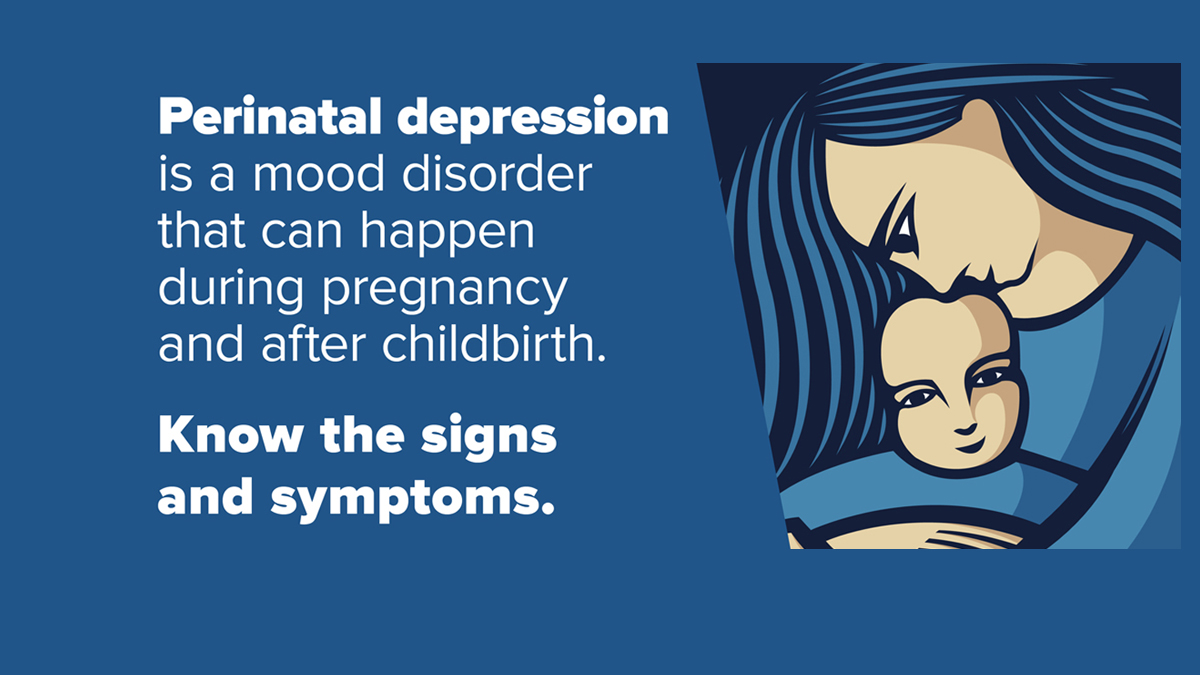“Nurture mothers, nurture the nation.”
May is a month that is dedicated to our mothers all over the globe. The month is observed and celebrated by different names over the place but their aim all coincides with delivering better healthcare services to our mothers and spreading awareness about the hardships faced by new or expectant mothers. For instance, May is marked as Maternal Mental Health Awareness Month in Canada, and Maternal Mental Health Matters Awareness Week is observed in the United Kingdom during the month of May.
Since maternal depression is a worldwide public health issue, several nations recognize and commemorate a month-long awareness campaign. The aim is to increase awareness, reduce stigma, and promote early detection and treatment of maternal depression to improve the health and well-being of mothers and their children. Other countries may have different months or weeks devoted to raising awareness about maternal depression and perinatal mental health, but the goal is the same.
In India, maternal depression is a serious problem for the nation’s health. Up to 20% of Indian moms may have maternal depression, according to a study by the Indian Council of Medical Research. The study also discovered that poor maternal health behaviors, such as inadequate prenatal care and poor nutrition, are linked to maternal depression and can have detrimental effects on both the mother and the unborn child. Due to a lack of awareness, stigma, and poor mental health facilities, maternal depression is frequently underdiagnosed and undertreated in India despite its high prevalence. Therefore, it is essential to promote early detection and treatment of maternal depression and raise awareness of it to improve the health and well-being of mothers and their children in India.
Thus, every year in May, there is a global awareness campaign to raise awareness of maternal depression which aims to increase public awareness of maternal depression, a widespread mental health condition that commonly affects pregnant and postpartum women. Organizations and advocates raise awareness of maternal depression throughout National Maternal Depression Awareness Month and urge women to get help if they are showing symptoms. This can entail assisting mothers and their families with resources and support, facilitating easier access to mental health care, and educating medical professionals on the value of screening for maternal depression.
Imagine, after having her first child, a new mother experiences feelings of despair, worry, and hopelessness. She withdraws, isolates herself, and even considers harming herself. She has a hard time getting out of bed in the morning and is too exhausted to care for herself or her infant. Even the things that used to make her happy no longer appear to have any effect on her. She seems to be unable to find joy in anything anymore. The growth of her kid as well as her ability to care for herself and her child can be significantly impacted by maternal depression. It’s crucial to recognize the warning signs and symptoms of maternal depression, which can include sad, anxious, or guilty feelings, changes in eating or sleep patterns, and a lack of interest in once-enjoyable activities as we have observed in the illustration above.
Women who are pregnant or have recently given birth may have maternal depression which is a type of depression that only affects people during the perinatal period that encompasses pregnancy and the first year after giving birth. Compared to typical depression, maternal depression is more complex because it affects both the mother’s and the child’s mental health. Depression in mothers can make it harder for them to bond with their newborns, which may adversely affect the child’s emotional and cognitive growth. In addition to these negative health behaviors, maternal depression can also result in poor self-care, unhealthful eating patterns, and insufficient sleep, all of which can affect both the mother and the child.
Maternal depression presents additional difficulties because it may be difficult to recognize. It might be difficult to discern between regular baby blues and more serious depression because symptoms can resemble those of common postpartum changes. In addition, many women might be too humiliated or embarrassed to ask for assistance, which would delay diagnosis and treatment.
Typically, therapy and medication are used in the treatment of maternal depression. It’s crucial to remember nevertheless that not all antidepressants are suitable for women who are nursing. As a result, women must consult with their medical professionals about the safest and best treatment options for both them and their unborn child.
National Maternal Depression Awareness Month is necessary to increase public awareness of maternal depression because it can significantly affect a mother’s capacity to care for herself and her child as well as her kid’s growth. However, maternal depression is frequently not recognized or properly treated, and many women may be reluctant to ask for assistance out of shame or embarrassment. In addition to encouraging women to get care if they are suffering symptoms, National Maternal Depression Awareness Month works to de-stigmatize the condition. It also encourages training and the provision of tools to help medical professionals detect and handle maternal depression more effectively. By raising awareness about maternal depression, we may encourage women to seek treatment and let their families know they are not alone. The health and well-being of moms and their kids can ultimately be improved by the initiatives taken during National Maternal Depression Awareness Month.

